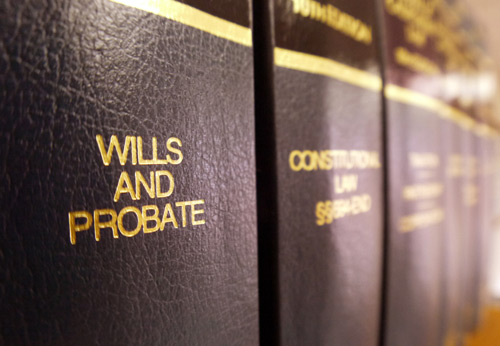Last week the North Carolina Court of Appeals reversed the lower court’s decision allowing a case involving alcohol poisoning against a hotel and its staff to go forward.[1] Lisa Davis and her husband Thomas were celebrating their wedding anniversary at the Crown Plaza Resort in October of 2012. They had dinner at Mulligans, the hotel’s restaurant, and spent four and a half hours there. Between the two of them, they consumed twenty-four drinks – drinks the restaurant’s employees served them. Not surprisingly, Lisa was extremely intoxicated. She was unable to walk and unable to stand up after falling, so the hotel employees put her in…
-
-
Master of Your Domain?: The Nuance of Eminent Domain and Charlotte’s Light Rail
Since before the establishment of the United States, governments have taken the land of private citizens. The issue was so fundamental to the founders of this country they wrote it into the Fifth Amendment of the Constitution which states, in part, “nor shall private property be taken for public use, without just compensation.” The issue of what constitutes a taking, however, is still a matter of dispute in courts across the country, including the North Carolina Court of Appeals. On Tuesday, the Court published an opinion regarding whether a property owner was entitled to just compensation for the loss of visibility to a business due to the construction of a…
-
North Carolina Court of Appeals Clarifies Reach of Clerk of Court’s Original Jurisdiction
A recent decision by the North Carolina Court of Appeals reinforced the distinction between claims over which the trial divisions have original jurisdiction and claims which are properly brought before the Clerk of Court.[1] In Morgan-McCoart v. Matchette, an elderly woman, Ms. Simpson, created a revocable trust and executed a Durable Power of Attorney in 2008. Her daughter, Julie, was named as her trustee and attorney-in-fact, and her other daughter, Claudia, was named as the alternate trustee and attorney-in-fact. Ms. Simpson was declared incompetent in 2009. Julie lived in California, making it difficult to fulfil her duties. Accordingly, Julia…
-
North Carolina Business Court Weights in on Attorneys’ Fees in Class Action Settlements
Recent decisions by the North Carolina Court of Appeals and North Carolina Business Court (NCBC) shed light on a previously unsettled question of law: when can a North Carolina trial court award attorney’s fees as part of a class-action settlement in the absence of additional statutory authority? Long-standing precedent is that a court can award attorneys’ fees to a prevailing party when statutorily authorized to do so.[1] This practice is known as the “American Rule.” The intended purpose of the American Rule is to encourage the conservation of judicial resources by promoting settlement and discouraging unnecessarily prolonged litigation.[2] Regarding…
-
Estates of the Deceased “Wilmington Ten” Barred From Petitioning for Remuneration Payments for Wrongful Convictions
In 1971, amidst heated racial confrontations following court-ordered desegregation of public schools, Mike’s Grocery Store in Wilmington, North Carolina was firebombed. Police and fire rescue personnel responding to the scene were attacked by the perpetrators, and the event resulted in the arrest and conviction of nine black men and one white woman, collectively dubbed the “Wilmington Ten.” The incident received national attention and several articles were published in the late 1970’s on the trial and its aftermath. In 1980 the Fourth Circuit Court of Appeals overturned their convictions, determining that the defendants were denied their right to constitutional due process as a result of prosecutorial…
-
Caveat to a Caveat to a Will: North Carolina Court of Appeals Offers Non-Binding Opinion
In October the North Carolina Court of Appeals issued an unpublished opinion addressing the circumstances under which it is appropriate to grant a motion to dismiss in the context of a will caveat.[1] A caveat is a legal challenge to the probate of a will when there is confusion or disagreement as to the interpretation of the will. The three issues addressed were: (1) can a caveat challenge only a part of a will; (2) can an executor who presents a will for probate later file a caveat; and (3) can one who accepts a benefit under a will later challenge its validity via caveat?…
-
Eastern District of North Carolina Predicts the North Carolina Supreme Court Will Apply the Doctrine of Inevitable Disclosure “Under Certain Circumstances.”
The Eastern District of North Carolina recently decided a case affirming that, while North Carolina courts have not yet adopted the doctrine of inevitable disclosure, North Carolina would adopt the doctrine under certain circumstances.[1] Spirax Sarco, Inc., (“Spirax”), alleged a claim for, among other things, injunctive relief under the doctrine of inevitable disclosure against one of its former employees. Spirax purported that defendant Bryan Johnson (“Johnson”) used his company issued laptop to download thousands of confidential computer files to personal devices without permission. Johnson resigned from Spirax on May 27, 2014 to work for SSI Engineering, Inc. (“SSI…
-
Challenging the Validity of a Will vs. the Construction of a Will: North Carolina Court of Appeals Clarifies
Earlier in September the North Carolina Court of Appeals highlighted the procedural difference between challenging the validity of a will through a caveat proceeding and resolving questions as to the construction of a will through an action for declaratory judgment.[1] Plaintiff, Deborah Hildebran (“Hildebran”) was listed as the executrix of her father’s will (the “Will”). Upon her father’s death, the Will was probated in common form before the clerk and Hildebran was appointed executrix. The Will contained several handwritten markings, notably a line that struck through the name of the testator’s granddaughter Chanté Brittian…
-
N.C. Court of Appeals: Caveators Were Not Prejudiced By Dead Man’s Statute Since the Jury “heard the gist of caveators’ evidence.”
In 1960 Charles Pickelsimer (“Charles”) inherited significant stock holdings in a family telecommunications company.[1] Over the next 45 years, Charles gave his children and grandchildren stock certificates as gifts. When he sold the company in 2008 for $65 million, Charles and his children received significant cash distributions. In 2009, Charles and his wife executed an estate plan to protect their assets, and their children were the primary beneficiaries. Charles was diagnosed with mild dementia and memory loss in January 2010, and his wife died in March of that year. His condition continued to subsequently decline. Charles executed a new estate plan in August 2010 (“2010…
-
Non-Conforming Payable on Death Accounts Can Survive as Common Law Tentative or “Totten” Trusts
On August 4, 2015, the North Carolina Court of Appeals issued a ruling clarifying that when a grantor seeks to create a statutory payable on death (“POD”) account, but fails to satisfy the statutory provisions, he/she can still rely on the existence of a common law tentative trust or “Totten” trust as an alternative.[1] The Totten trust, sometimes called a “poor man’s will,” was established after the 1904 New York Court of Appeals decision, In the Matter of Totten. The requirements to create a Totten trust are: (1) sufficient words to show intention to create…







